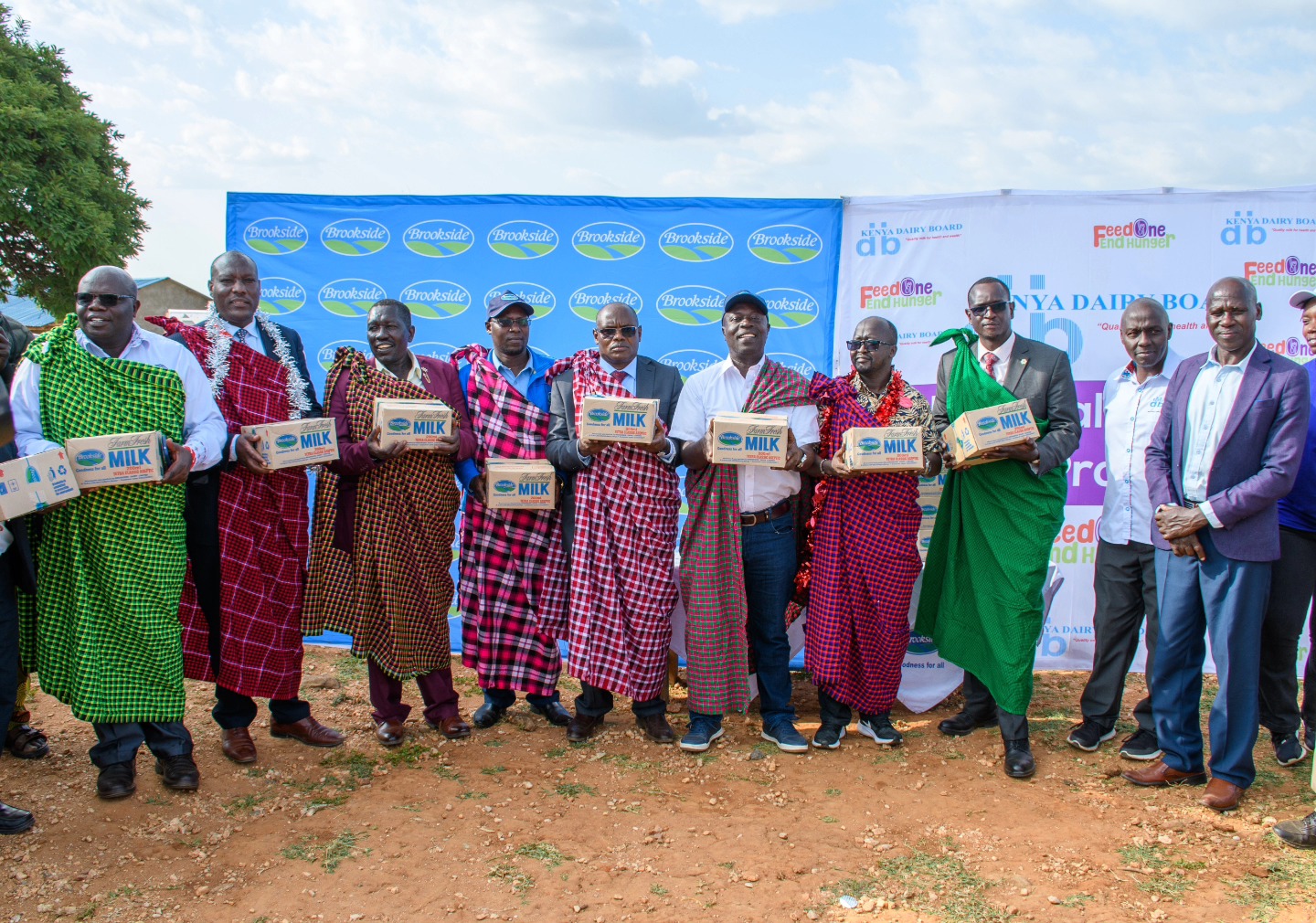In a strategic push to bolster education outcomes in marginalized communities, Brookside Dairy, in collaboration with the Office of the First Lady and the Kenya Dairy Board (KDB), has launched a year-long school milk programme aimed at improving learner retention and nutrition in West Pokot County.
Launched at Kodengel Comprehensive School in Kapenguria, the initiative underscores the critical link between child nutrition and academic performance. The programme, currently in its pilot phase, targets schools in underserved areas where access to consistent, nutritious meals remains a barrier to regular school attendance and classroom participation.
Brookside Dairy’s Communications Manager, Wilson Okong’o, emphasized the company’s deep-rooted commitment to education through sustainable nutrition.
“We believe that quality milk is not just nourishment, it’s a tool for empowerment,” he said. “Through this partnership, Brookside is supporting the First Lady’s ‘Feed One, End Hunger’ initiative by supplying milk to selected pilot schools for an entire year. This aligns with our social investment theme: Goodness for All.”
ALSO READ:
MPs vow to back research and tech innovation in education sector
Each pupil under the programme will receive two packets of milk weekly a gesture that education stakeholders in the county say will help improve learners’ concentration, cognitive development, and overall school attendance.
Okong’o called for the mainstreaming of the school milk initiative within the First Lady’s broader strategic framework on food security, describing it as a “timely boost to the country’s education sector.”
“This is more than a feeding initiative it’s a statement of support for the future of Kenyan children. It affirms Brookside’s values in health, sustainability, and inclusive growth,” he noted.
The Kenya Dairy Board’s Acting Managing Director, Dr. William Maritim, lauded Brookside’s far-reaching investment in social programs that prioritize learners, echoing the sentiments of Julius Rotich from the Office of the First Lady, who affirmed the programme’s potential to transform education equity in rural counties.
ALSO READ:
South Rift parents plead with principals over school fees as students resume learning
West Pokot Deputy Governor Robert Komolle praised the initiative as a game-changer for the county’s education landscape. “This collaboration is proof that strategic partnerships between the public and private sectors can yield real impact. Our children are staying in school because they are not just being educated—they are being nourished.” Komolle said.
Education experts have long noted that hunger is among the leading reasons for school dropouts in arid and semi-arid regions. Programmes such as these are seen as instrumental in closing the education gap and ensuring that every child, regardless of geography, has a fair chance at academic success.
As the pilot unfolds, stakeholders remain optimistic that this model could be scaled up nationally setting the stage for a future where no child is kept out of class by an empty stomach.
By Masaki Enock
You can also follow our social media pages on Twitter: Education News KE and Facebook: Education News Newspaper for timely updates.
>>> Click here to stay up-to-date with trending regional stories
>>> Click here to read more informed opinions on the country’s education landscape






